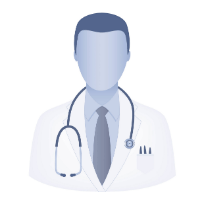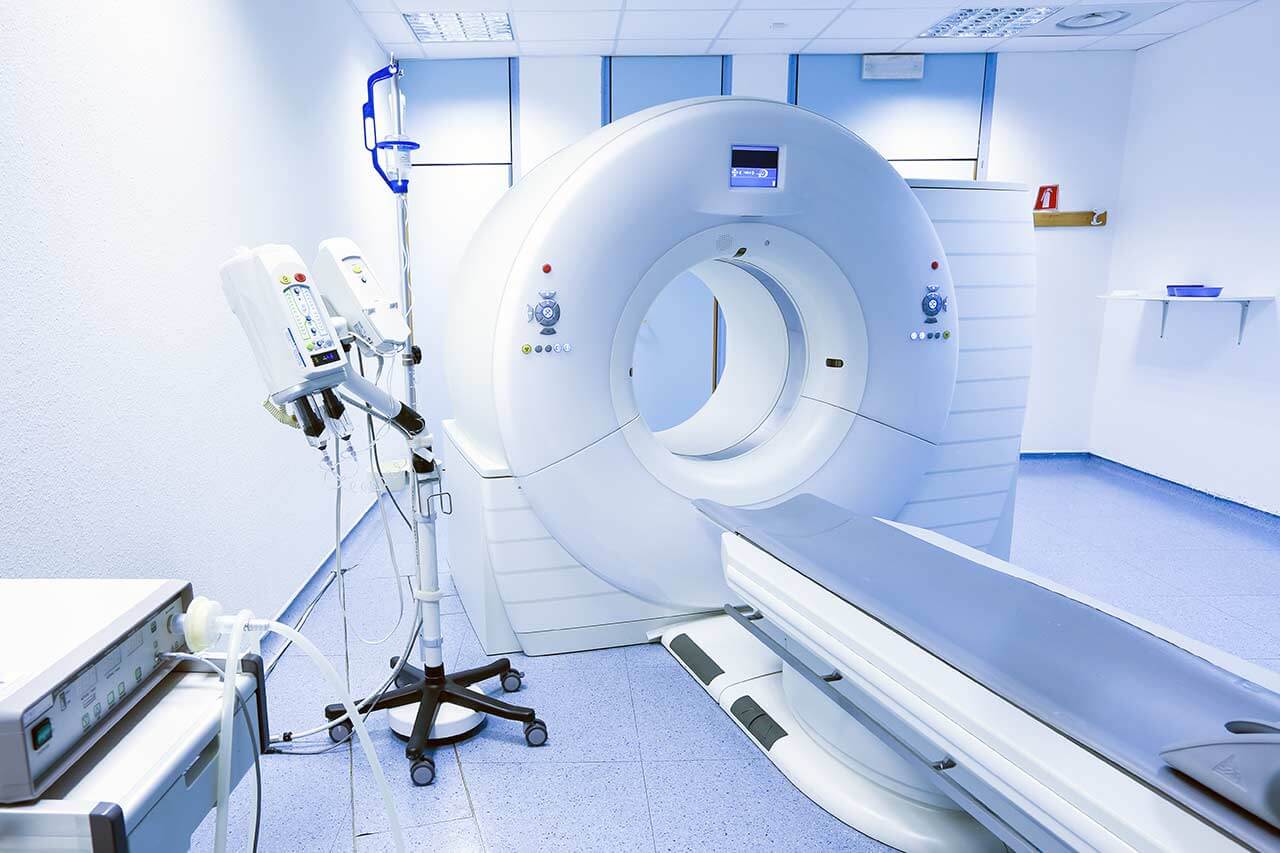
The program includes:
- Initial presentation in the clinic
- clinical history taking
- analysis of medical records
- physical examination
- laboratory tests:
- complete blood count
- biochemical analysis of blood
- TSH-basal
- tumor markers
- inflammation indicators
- indicators of blood coagulation
- ultrasound scan of the abdomen
- CT/MRI scan of the abdomen
- colonoscopy with biopsy (if indicated)
- histological and immunohistochemiсal analysis
- 1 course of chemotherapy
- consultation of related specialists
- symptomatic treatment
- cost of essential medicines and materials
- nursing services
- control examinations
- full hospital accommodation
- developing of further guidance
How program is carried out
During the first visit, the doctor will conduct a clinical examination and go through the results of previous laboratory tests and instrumental examinations. After that, you will undergo an additional examination, including laboratory assessment of liver and kidney function, ultrasound scan. Based on the received results, the doctor will elaborate the chemotherapy regimen. If necessary, related medical specialists will be involved in the elaboration of a treatment regimen (tumor board).
Chemotherapy is carried out as the day hospital procedure, without mandatory admission to the hospital. After the placement of a venous catheter, you will stay in a comfortable ward. An infusion system will be connected to the catheter, through which the required drug or a drug combination will be administered. All drugs are administered by intravenous drip, slowly, so the total duration of the infusion can be up to several hours. All this time, doctors and nurses will monitor your health condition closely.
After the course of chemotherapy, you will stay under medical supervision in the ward for a few more hours. If your general condition is good, your doctor will allow you to leave the hospital. You will receive the medical report with detailed recommendations regarding further treatment. In the future, you will be able to have a distant consultation with your attending physician and schedule the next course of chemotherapy, if necessary.
Required documents
- Medical records
- MRI/CT scan (not older than 3 months)
- Biopsy results (if available)
Service
You may also book:
 BookingHealth Price from:
BookingHealth Price from:
About the department
The Department of Hematology, Oncology, Adult and Pediatric Rheumatology at the University Hospital Heidelberg offers the full range of modern diagnostics and treatment of malignant diseases, rheumatic pathologies, including particularly complex clinical cases in these fields. In addition, the department's doctors specialize in bone marrow transplantation and occupy leading positions in this field at the international level. The department is headed by Prof. Dr. med. Carsten Müller-Tidow.
The medical team of the department makes every effort to guarantee each patient an individual, first-class treatment, based on the very latest achievements of modern medicine and human respect, understanding of the needs of each patient.
The service range of the department includes:
- Hematology
- Bone marrow transplantation
- Diagnostics and treatment of leukemias
- Acute lymphocytic leukemia
- Chronic lymphocytic leukemia
- Hairy cell leukemia
- T-prolymphocytic leukemia
- Diagnostics and treatment of myelodysplastic syndrome
- Diagnostics and treatment of malignant lymphomas
- Diagnostics and treatment of myeloproliferative diseases
- Chronic myeloid leukemia (BCR-ABL1 mutation)
- Chronic neutrophilic leukemia
- True polycythemia
- Primary myelofibrosis (prefibrotic stage, open primary myelofibrosis)
- Essential thrombocythemia
- Chronic eosinophilic leukemia
- Unclassifiable myeloproliferative neoplasia
- Diagnostics and treatment of multiple myeloma
- Conventional chemotherapy
- High-dose chemotherapy
- Therapy with the use of new drugs (thalidomide, lenalidomide, bortezomib)
- Radiation therapy
- Treatment of complications, as well as maintenance therapy
- Introduction of new therapeutic approaches according to the results of clinical trials
- Kyphoplasty
- Diagnostics and treatment of amyloidosis
- Classical chemotherapy for the firstly diagnosed disease and relapse
- High-dose chemotherapy
- Diagnostics of previously unclassified amyloidosis
- Second opinion during and after chemotherapy
- Oncology
- Diagnostics and treatment of cancer of unknown primary
- Diagnostics and treatment of malignant germ cell tumors (testicular tumors)
- Diagnostics and treatment of malignant bone tumors (osteosarcoma, Ewing's sarcoma)
- Diagnostics and treatment of malignant soft tissue tumors (soft tissue sarcoma)
- Rheumatology
- Diagnostics and treatment of rheumatoid arthritis
- Diagnostics and treatment of spondyloarthritis
- Diagnostics and treatment of vasculitides
- Diagnostics and treatment of collagenoses
- Diagnostics and treatment of autoimmune diseases
- Diagnostics and treatment of sarcoidosis
- Diagnostics and treatment of neuromuscular diseases
- Diagnostics and treatment of inflammatory eye diseases (uveitis)
- Diagnostics and treatment of rheumatological diseases in children and adolescents
- Diagnostics and treatment of fibromyalgia (primary and secondary form)
- Diagnostics and treatment of degenerative changes, crystalline arthropathy
- Diagnostics and treatment of congenital collagenoses and lysosomal storage diseases
- Diagnostics and treatment of other hematologic, oncologic and rheumatic diseases
Curriculum vitae
Prof. Dr. med. Carsten Müller-Tidow studied medicine in Aachen, Bonn and the USA. He began his clinical work in Internal Medicine at the University Hospital Muenster and for several years participated in the scholarship program of the German Research Foundation (DFG) in Los Angeles at the University of California (UCLA). After training to become a Medical Specialist in Internal Medicine at the University Hospital Muenster, he became a Fellow of the Heisenberg Foundation of the German Research Foundation.
In 2009, the doctor received the title of a University Professor of Internal Medicine with a focus on Hematology and Oncology, University of Muenster.
From 2014 to 2017, he served as the Head of the Department of Hematology and Oncology and the Head of the Center for Cellular and Gene Therapy at the University Hospital Halle.
Since February 2017, the doctor is the Head of the Department of Hematology, Oncology, Adult and Pediatric Rheumatology at the University Hospital Heidelberg. He is also a Mof the extended presidium of the National Cancer Center (NCT).
The main clinical focuses of Prof. Müller-Tidow cover the treatment of acute leukemia, myelodysplastic syndrome, lymphomas, multiple myeloma. It is important for him not only to adhere to the highest standards in his daily clinical practice, but also to develop new methods of treatment together with the medical team of the department.
The key research focuses are acute myeloid leukemia, epigenetic changes in tumors, stem cell application and genomics. The professor received many awards for his works.
Photo: (с) depositphotos
About hospital
According to Focus magazine, the University Hospital Heidelberg ranks among the top five hospitals in Germany!
The hospital is one of the most advanced and reputable medical institutions not only in Germany but throughout Europe. There are more than 43 specialized departments and 13 medical institutes which cover all fields of modern medicine. A distinctive feature of the hospital is the presence of unique therapeutic methods for the treatment of complex and rare clinical cases.
Due to successful clinical practice, the hospital has been holding leading positions in the international medical arena for many years. The basis for this popularity is the combination of the very latest technologies, competent specialists, and active research activities, which allows introducing of revolutionary diagnostic and treatment methods, which save lives.
In addition to the outstanding medical achievements, it is worth noting a particularly friendly and pleasant atmosphere, and respectful attitude towards the patient. Both doctors and nursing staff make every effort to meet all the needs and wishes of the patient, pay due attention to each clinical case, and have personal communication with the patient, which contributes to a positive treatment result.
Photo: (с) depositphotos
Accommodation in hospital
Patients rooms
The patients of the University Hospital Heidelberg live in comfortable single and double rooms designed in bright colors. Each room is equipped with an ensuite bathroom with a shower and toilet. The patient rooms are quite spacious, they have a table with chairs for receiving visitors. Roomy wardrobes are provided for storing personal belongings. It is possible to connect to the Internet. In addition, the hospital offers enhanced-comfort rooms with a safe, refrigerator, and upholstered furniture. Patients have 24-hour access to the services of medical personnel.
Meals and Menus
The patient and his accompanying person have a daily choice of three menus. If you for some reason do not eat all the products, you will be offered an individual menu. Please inform the medical staff about your dietary preferences prior to the treatment.
Further details
Standard rooms include:
Religion
The religious services are available upon request.
Accompanying person
During the inpatient program, an accompanying person may stay with you in a room or hotel of your choice.
Hotel
During the outpatient program, you may live in a hotel of your choice. The managers will help you choose the most suitable options.
The hospital offers a full range of laboratory tests (general, hormonal, tests for infections, antibodies, tumor markers, etc.), genetic tests, various modifications of ultrasound scans, CT scans, MRI and PET / CT, angiography, myelography, biopsy and other examinations. Treatment with medications, endoscopic and robotic operations, stereotaxic interventions is carried out here, modern types of radiation therapy are also used. The hospital offers patients all the necessary therapeutic techniques.
- Endovascular treatment of liver pathologies with LigaSureTM, Ultracision® and Habib®-Sealer devices
- Correction of chest deformities in children (Nass operation)
- Minimally invasive direct coronary artery bypass grafting
- Replacement of ascending aorta (David procedure)
- Operations using the da Vinci robotic system
These are primary lung tumors and metastases in the lungs, benign and malignant liver pathologies, thyroid pathologies, gastroesophageal reflux disease, heart rhythm disturbances and heart failure, infertility, fibromyalgia, damages and pathologies of large joints, polyneuropathy and other diseases.
- Thoracic surgery
- Cardiac surgery
- Urology
- Orthopedics and traumatology
- Obstetrics and gynecology
The hospital's team consists of more than 13,000 highly qualified employees




